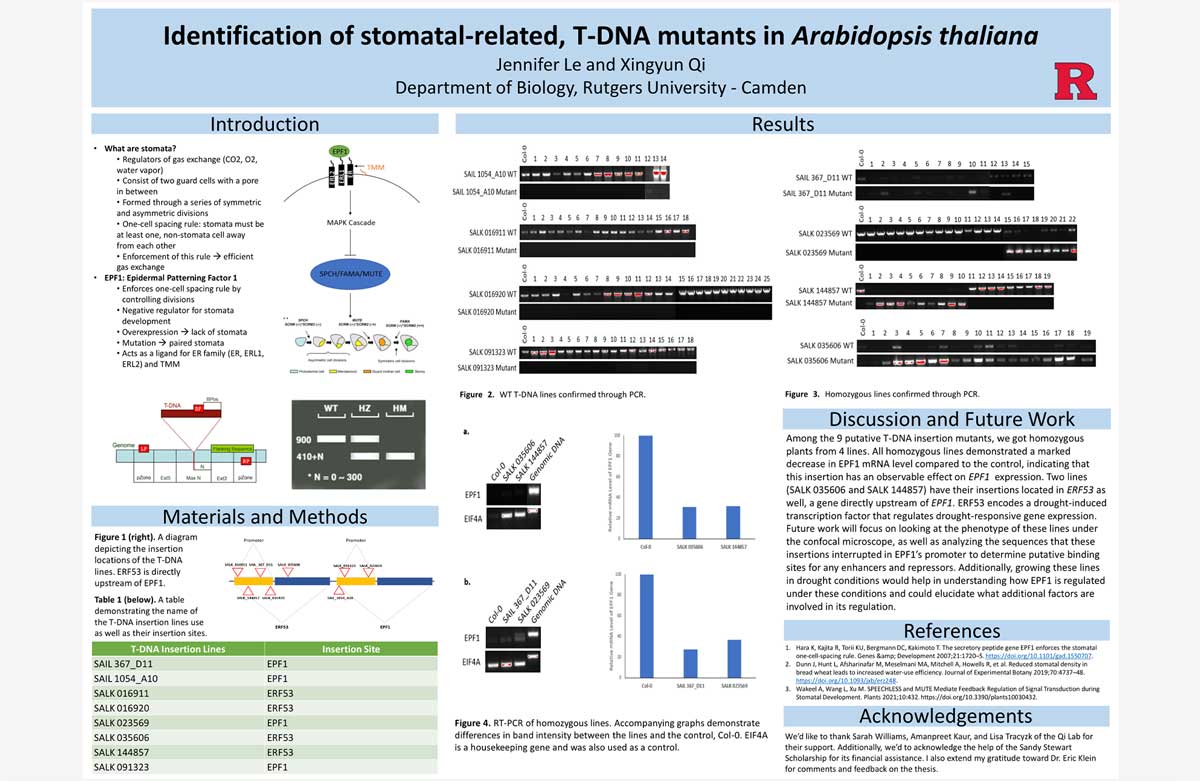Jennifer Le ‘21
Major: Biology
Minor: Chemistry
Affiliation: Honors College, Sandy Stewart Undergraduate Research Grant Recipient
Faculty Mentor: Dr. Xingyun Qi, Assistant Professor of Biology
Abstract
Stomata act as regulators of gas exchange in plants and consist of two guard cells, surrounding a central pore. They are essential for plant survival and growth and are formed through a series of asymmetric and symmetric divisions, a process that involves the gene EPF1. EPF1’s function in stomata development is to prevent neighboring cells from developing into stomata and thus, contributing to efficient gas exchange throughout the plant. Although EPF1’s function is well understood, its regulation is not. The goal of this project is to analyze the role of the EPF1 promoter, which is a DNA fragment regulating EPF1 expression, utilizing mutants created by transfer-DNA (T-DNA) insertion in the genome of the model plant Arabidopsis thaliana. T- DNA inserted in the promoter region can cause discernable effects on gene expression, thus leading to an observable phenotype in the mutants. Presence of the T-DNA insertions in EPF1 promoter can be confirmed by molecular techniques such as PCR and gel electrophoresis. Wild-type and mutant primers were designed according to the putative insertion sites of the T-DNA. If the DNA is replicated for the mutant primers but not for the wild-type’s, the plant is homozygous for the insertion. The mRNA levels of EPF1 can then be analyzed using RT-PCR and if the levels are affected, then the plant’s phenotype can be observed under the confocal microscope. Completion of this experiment will lead to new insights in our understanding on EPF1 gene regulation, which is crucial for stomatal development, a trait essential for crop development in agriculture.

